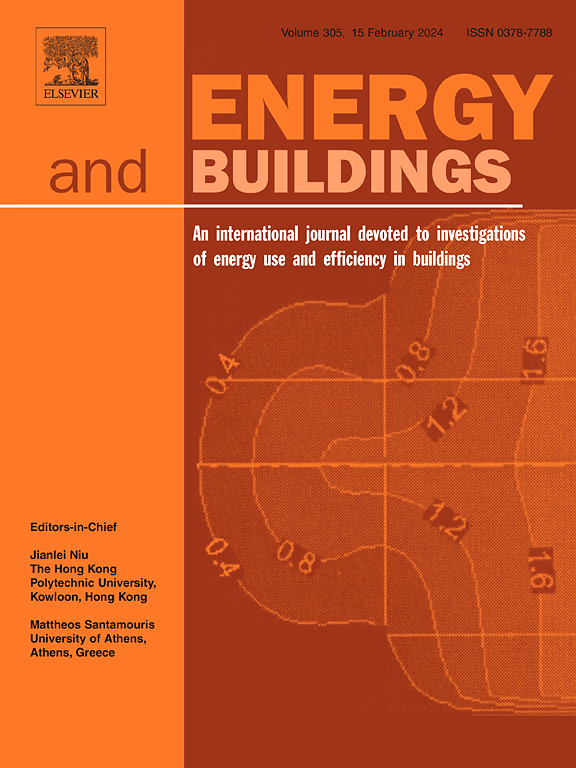Enhancing grid stability with machine learning: A smart predictive approach to residential energy management
IF 6.6
2区 工程技术
Q1 CONSTRUCTION & BUILDING TECHNOLOGY
引用次数: 0
Abstract
This research focuses on enhancing energy efficiency and grid stability in residential buildings by developing and evaluating advanced demand response (DR) strategies, explicitly comparing a Rule-Based model with a Predictive model leveraging machine learning. The Predictive Model utilised a neural network with ReLU activation functions, optimised using grid search and cross-validation, and incorporated real-time data from smart meters and environmental sensors. Evaluation metrics demonstrated that the Predictive Model outperformed the Rule-Based Model, achieving a 15% reduction in electricity costs, a 20% improvement in energy efficiency, and a 15% reduction in peak load demands while maintaining a high predictive accuracy of 0.95%. However, these benefits came with increased computational complexity and resource requirements. The Rule-Based Model, while more straightforward and less resource-intensive, was less effective in dynamic environments. This study underscores the potential of integrating machine learning with real-time data for optimising residential energy management, offering significant cost savings and contributing to sustainable energy practices. The findings suggest that, despite higher computational demands, the Predictive Model provides superior adaptability and accuracy, making it a valuable tool for future smart grid applications.
用机器学习增强电网稳定性:住宅能源管理的智能预测方法
本研究的重点是通过开发和评估先进的需求响应(DR)策略来提高住宅建筑的能源效率和电网稳定性,明确比较基于规则的模型和利用机器学习的预测模型。该预测模型利用带有ReLU激活函数的神经网络,通过网格搜索和交叉验证进行优化,并结合了来自智能电表和环境传感器的实时数据。评估指标表明,该预测模型优于基于规则的模型,在保持0.95%的高预测精度的同时,实现了15%的电力成本降低,20%的能源效率提高,15%的峰值负荷需求降低。然而,这些好处伴随着计算复杂性和资源需求的增加。基于规则的模型虽然更直接,资源消耗更少,但在动态环境中效率较低。这项研究强调了将机器学习与实时数据相结合的潜力,可以优化住宅能源管理,节省大量成本,并为可持续能源实践做出贡献。研究结果表明,尽管计算需求更高,但预测模型提供了优越的适应性和准确性,使其成为未来智能电网应用的宝贵工具。
本文章由计算机程序翻译,如有差异,请以英文原文为准。
求助全文
约1分钟内获得全文
求助全文
来源期刊

Energy and Buildings
工程技术-工程:土木
CiteScore
12.70
自引率
11.90%
发文量
863
审稿时长
38 days
期刊介绍:
An international journal devoted to investigations of energy use and efficiency in buildings
Energy and Buildings is an international journal publishing articles with explicit links to energy use in buildings. The aim is to present new research results, and new proven practice aimed at reducing the energy needs of a building and improving indoor environment quality.
 求助内容:
求助内容: 应助结果提醒方式:
应助结果提醒方式:


